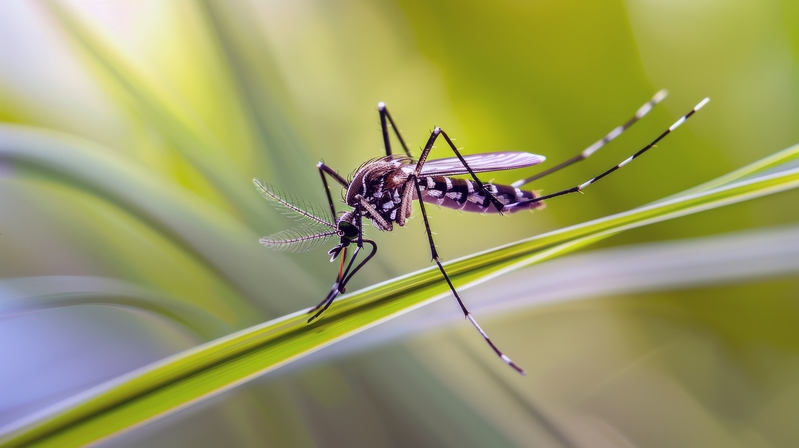Mosquitos can cause diseases such as chikungunya, Japanese encephalitis, and dengue.
Let us discuss the less well-known disease spread by mosquitoes, which is chikungunya. This disease is usually found in the more eastern parts of Indonesia. However, because some of us might enjoy travelling in this huge archipelago, it is important to have some knowledge about this disease. Chikungunya can cause fever and intense joint pains. Moreover, sometimes, chikungunya looks like dengue, another disease which people might be more familiar with.
Chikungunya is caused by the chikungunya virus and is spread by mosquito bites. Thus, the best way to avoid infection is to prevent mosquito bites in the first place.
How to avoid mosquito bites
- Use of insect repellents, anti-mosquito lotions, or sprays: Repellents which contain ‘DEET’ are recommended. Eucalyptus oil also works. Moreover, you can use sunscreen first before putting on insect repellent;
- Wear the right type of clothing: Long, loose-fitting clothing reduces the amount of exposed skin that can be bitten;
- Use a mosquito net: Sleeping or resting under a net protects you from being bitten;
- Reduce mosquitoes around your accommodation: Stopping mosquitoes from entering and breeding around your home helps prevent you from being bitten by these insects.
If you develop a fever, especially after travelling to the more eastern part of Indonesia, it is better to start seeking medical attention.
Chikungunya: Overview of the disease
Chikungunya is spread by the bite of the Aedes species of mosquito. These predominantly bite during the day, from sunrise until sunset. These mosquitoes also transmit dengue fever and yellow fever.
Chikungunya fever can be discovered in more than 100 countries in Africa, Asia, North, South and Central America, the Caribbean, and the Pacific islands.
The illness
Symptoms of chikungunya start four to eight days after the mosquito bite. A high fever and, oftentimes, pains in the joints are the main symptoms of this disease. Rash, headache, exhaustion, nausea, and muscle pains may also be experienced.
Chikungunya behaves like a viral illness. It usually gets better over a few days or a week, and serious complications are uncommon. The pains in the joints may continue in some people for weeks to months or even longer.
Your GP (GOOD PRACTICE) can test to see if you are infected
Using a blood test, your GP (GOOD PRACTICE) can test to see if you are infected with chikungunya. Symptoms like fever, joint pain, and headache can be treated with painkillers. Paracetamol up to four grams a day could be taken by the patient as well. Ongoing joint pains often need anti-inflammatory medications like ibuprofen, following an assessment by a specialist.
What about Japanese encephalitis?
Japanese encephalitis is caused by a virus which is spread through mosquito bites. Symptoms include flu-like symptoms, headache, fever, nausea, and tummy pain. In some cases, the infection spreads to the brain and causes serious symptoms like a severe headache, confusion, paralysis, and seizures. This virus can be found in parts of Asia, including Bali and the Eastern part of Indonesia.
However, to prevent it, you can get a vaccine. Usually, one vaccine is sufficient to protect you for life. And of course, you should avoid insect bites!
As for the treatment, for the ones who have already caught this disease, you may need to be treated in a hospital, especially if you are very unwell because Japanese encephalitis can be life-threatening. Managing this disease may include painkillers and steroids.
What about dengue?
Dengue is also a viral disease which is spread through mosquito bites, which is why to avoid catching this disease, it is best to avoid any mosquito bites in the first place. The disease is very common in urban areas, especially if there is any stagnant water in the neighbourhood. Symptoms are fever, headache, nausea, and rash. Usually, you may feel very ill for a week. Dengue can also lead to a complication like hemorrhagic fever, which is when you can start developing spontaneous bleeding. Diagnosis of whether you have caught this disease can be easily confirmed by a blood test.
However, the vaccine for dengue is now available and can protect against all four types of dengue. In Indonesia, the vaccine can be administered safely from age 6. Contact us for more information at the GOOD PRACTICE clinic.




